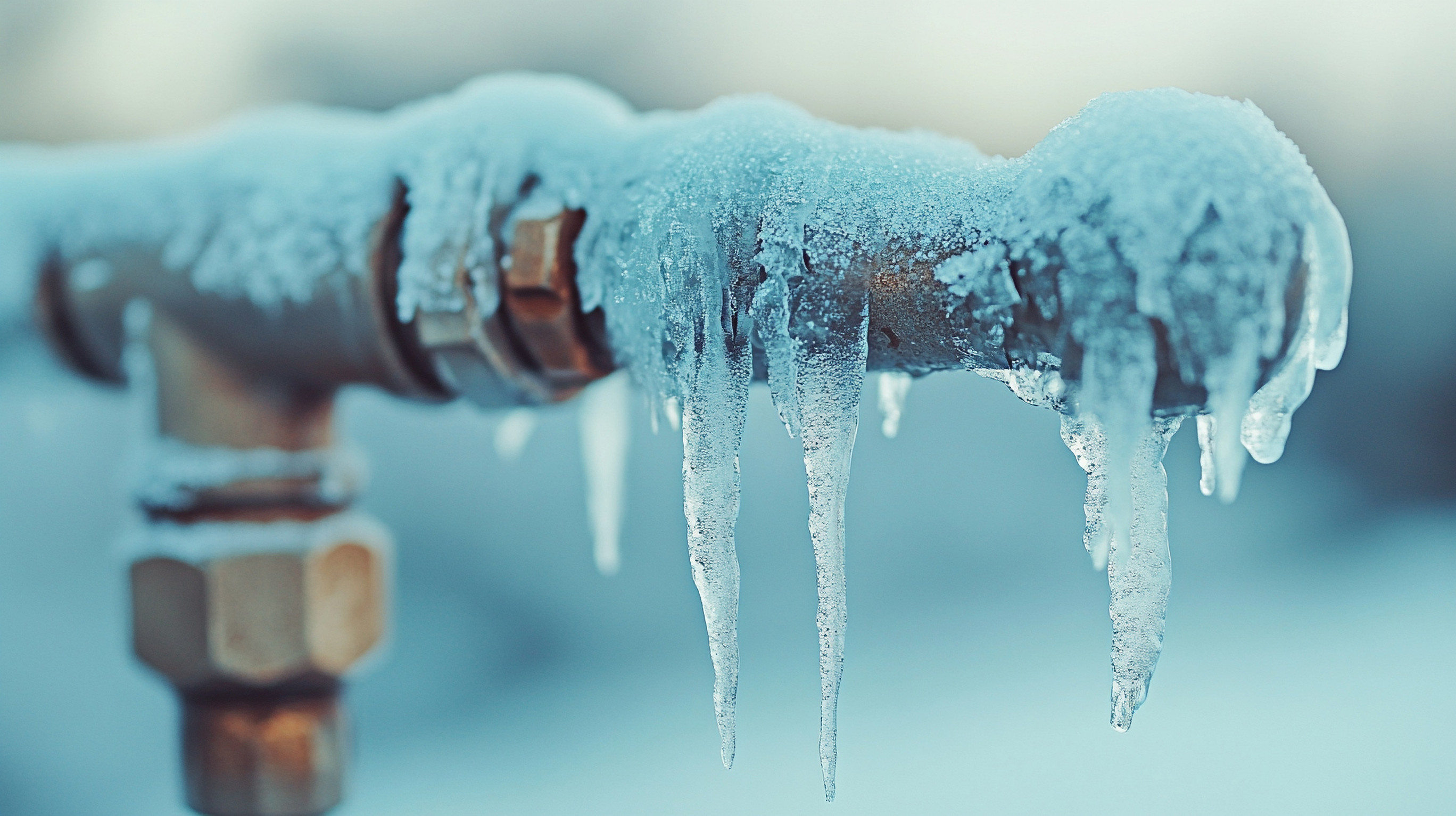How to Prevent Frozen Pipes in Winter

As temperatures drop in East Tennessee, frozen pipes become a serious threat for homeowners. Not only can frozen pipes cut off your water supply, but they can also burst and cause significant water damage. Prevention is key when it comes to winter plumbing issues, and with a few proactive steps, you can avoid costly repairs and keep your plumbing system in top shape all season long.
In this article, we’ll dive deep into how to prevent frozen pipes, which areas of your home are most vulnerable, and when it’s time to call a professional. For comprehensive plumbing support, consider Advanced Heat AC & Plumbing’s residential services for trusted solutions in East Tennessee.
Why Do Pipes Freeze in Winter?
When water inside your pipes drops below 32 degrees Fahrenheit, it begins to freeze. As the water turns to ice, it expands, putting pressure on the pipes. This pressure can cause the pipe to burst, leading to leaks and extensive water damage. Pipes located in uninsulated or poorly heated areas—like attics, basements, garages, and exterior walls—are especially susceptible.
Signs Your Pipes May Be at Risk
You may be at risk for frozen pipes if:
- Your home has poor insulation
- Pipes run along exterior walls
- You leave for extended periods during winter
- Your water pressure suddenly drops
- You hear clanging or banging sounds in the pipes
Acting early can help prevent a small issue from becoming a plumbing emergency. If you experience any of these signs, contact the best plumbing services in Tennessee for an inspection.
Steps to Prevent Frozen Pipes
1. Insulate Exposed Pipes
Wrap foam insulation sleeves or heat tape around pipes in unheated areas like crawl spaces, basements, and garages. Focus on pipes near exterior walls and windows.
Tip: For added protection, use a combination of foam pipe insulation and electric heat cables for maximum warmth.
2. Seal Air Leaks
Drafts near your pipes can significantly drop their temperature. Seal cracks around windows, doors, and pipe penetrations with caulk or spray foam.
3. Keep Interior Doors Open
Keep bathroom and kitchen cabinet doors open during cold nights to allow warm air to circulate around the plumbing. Also, keep interior doors open to ensure even heat distribution.
4. Let Faucets Drip
Running water is less likely to freeze. During extremely cold weather, let faucets drip slightly—especially those connected to pipes along exterior walls.
Important: Use both hot and cold water lines to keep pressure balanced and avoid freezing on either side.
5. Keep the Thermostat Consistent
Maintain a consistent indoor temperature, even when you’re not home. Set your thermostat to at least 55°F when you're away for extended periods.
Long-Term Solutions to Protect Your Plumbing
Upgrade Older Pipes
Older pipes made of galvanized steel or copper are more susceptible to freezing and bursting. Consider replacing them with modern, more durable PEX piping.
Our expert technicians at Advanced Heat AC & Plumbing can evaluate your plumbing system and recommend long-term upgrades tailored to your home’s needs.
Add Insulation to Vulnerable Areas
Adding insulation to attics, basements, and crawl spaces not only protects your pipes but also improves your home’s energy efficiency.
Install a Smart Thermostat
Smart thermostats can automatically adjust temperatures and alert you to sudden drops, helping you take action before pipes freeze.
What to Do If Your Pipes Freeze
Even with prevention, pipes may still freeze in extreme weather. If you suspect a frozen pipe:
- Turn off the main water supply to prevent potential bursts.
- Open faucets to relieve pressure.
- Apply heat using a hairdryer, heating pad, or portable space heater.
- Never use an open flame as it poses a serious fire hazard.
If the pipe is behind a wall or unreachable, it’s best to call a professional. Our water line repair specialists can safely locate and thaw frozen pipes without causing damage.
Commercial Properties Need Protection Too
Businesses in East Tennessee are equally vulnerable to frozen pipes. Insulate exposed pipes, close off unheated rooms, and monitor temperature-controlled areas.
For reliable commercial plumbing services, trust Advanced Heat AC & Plumbing’s commercial team for winter-proofing your facility.
Consider Installing a Tankless Water Heater
Tankless water heaters are less likely to freeze because they don’t store water in a large tank. They heat water on demand and can be installed in more temperature-stable areas.
Explore our tankless water heater installation options to improve both efficiency and winter protection.
When to Call a Professional
If you're unsure about the condition of your plumbing or need help winterizing your home, don’t wait. It’s easier and more affordable to prevent frozen pipes than to repair them after they burst.
Advanced Heat AC & Plumbing offers comprehensive inspections, pipe insulation, and emergency repairs tailored for East Tennessee homeowners.
FAQs About Preventing Frozen Pipes
What temperature do pipes freeze?
Pipes begin to freeze at 32°F, but the risk increases significantly when temperatures fall below 20°F.
Can I prevent frozen pipes without insulation?
While insulation is highly recommended, keeping a steady indoor temperature and allowing faucets to drip can help prevent freezing.
What should I do if I go on vacation?
Set your thermostat to at least 55°F, open cabinet doors under sinks, and consider turning off the water supply and draining the system.
Is it safe to use space heaters near pipes?
Yes, but never leave them unattended and keep them away from flammable materials.
Do frozen pipes always burst?
Not always. However, if ice blocks create enough pressure, they can cause the pipe to crack or rupture.
Protect Your Plumbing Before the Freeze Hits
Frozen pipes can be a homeowner’s worst nightmare—but with the right knowledge and tools, they’re entirely preventable. By insulating pipes, sealing drafts, maintaining a steady temperature, and working with professionals, you can enjoy a worry-free winter.
Need expert help? Schedule your plumbing inspection today with Advanced Heat AC & Plumbing and winter-proof your East Tennessee home before the next cold front hits.



